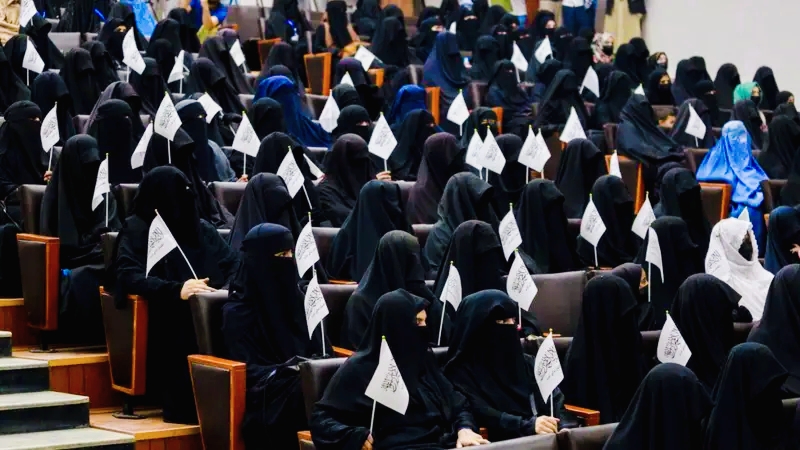In the largest comprehensive modification of university curricula since taking power, the Taliban government has taken a bold step to enhance its ideological control, as it completely canceled 18 university courses and banned the teaching of 679 university books, while also reworking 201 other study materials for review and adjustment to align with its own interpretation of Islamic law.
The Ministry of Higher Education in the Taliban government announced these measures as part of a plan aimed at "purifying university curricula to comply with Islamic law and the policies of the Islamic Emirate," based on recommendations from a special committee composed of clerics, Taliban members, and university professors.
The removed courses included various specializations, with a particular focus on political and legal subjects, as fundamental rights courses, political Islam movements, human rights, democracy, the Afghan constitution, women's sociology, the role of women in public relations, the political system, and political sociology in Afghanistan were deleted, in addition to materials addressing sexual harassment.
The ministry justified this step by stating that it was due to "legal violations" in these materials, confirming that the review included 201 other courses that universities were directed to teach relatively with criticism and modification to ensure compliance with legal standards.
In a related context, the Ministry of Higher Education imposed a complete ban on 679 university books in various fields such as law, international relations, political thought, philosophy, sociology, administration, in addition to books on interpretation, creed, and Islamic sciences, stressing the prohibition of referencing or citing them within classrooms.
Academics revealed that some of the banned books were even taught in Sharia colleges, indicating that the decision targets any intellectual or jurisprudential source that does not align with the Taliban's interpretation, especially those that present different interpretations of religious texts or raise questions about religious authority, which the ministry considers a threat to the unity of legal understanding.
Experts warn that these measures signify the end of open religious discussion and pluralism within Afghan universities, establishing a unilateral religious discourse imposed by the Taliban, which may lead to serious intellectual isolation and reduce the chances of international recognition of Afghan university degrees, as well as the possibility of the migration of scientific talents or their transition to informal education.
Previous reports also revealed that the Ministry of Higher Education had dismissed dozens of university professors, especially in Sharia and law colleges, replacing them with clerics holding degrees from religious schools equivalent to master's and doctoral degrees, alongside conducting sham exams to exclude academics who do not agree with the sectarian ideology of the government.
These steps come as part of the Taliban's plan to build a "pure Islamic educational system," amid warnings that this trend will further isolate Afghan universities and seriously threaten the future of higher education in the country.

